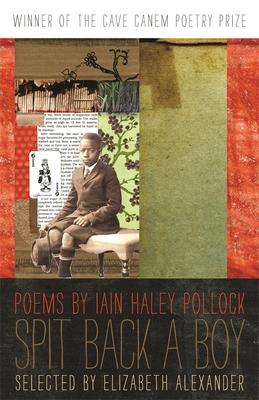Iain Haley Pollock's poems cover the ground from a woman late to catfish supper to an ancient queen who howls, "Sea, you is ugly," from the creaking of slave ships launched from Lancaster to gunfire on a contemporary Philadelphia street. Such lyric moments find grounding in stories woven through this book--in one story line, a boy with a black mother and white father wishes he could shed his white skin or carve into what lies beneath: "I flung my almost white self / into my mother's embrace--that brown / embrace I hoped would swallow me whole / and spit back a boy four shades darker." Another thread follows a marriage and a woman intertwined with hunger and the blues, a woman who hears a whale song in a refrigerator's hum, who cries hard like the lonely barking of a fox.
Even when these poems soften, they can't be complacent about good fortune: for all the maple seedpods and snow fluttering down here, the poems are always aware of wreckage and car bombs there, and they keep conscious of the mustard gas of old wars and the losses of recent ones. Punctuated with lives that end early, such as those of Hart Crane and Mikey Clark, a high-school classmate who once swiped the Communion wine, Pollock's collection earns its vitality and romance without closing its eyes to violence and sorrow.
Iain Haley Pollock's poems cover the ground from a woman late to catfish supper to an ancient queen who howls, "Sea, you is ugly," from the creaking of slave ships launched from Lancaster to gunfire on a contemporary Philadelphia street. Such lyric moments find grounding in stories woven through this book--in one story line, a boy with a black mother and white father wishes he could shed his white skin or carve into what lies beneath: "I flung my almost white self / into my mother's embrace--that brown / embrace I hoped would swallow me whole / and spit back a boy four shades darker." Another thread follows a marriage and a woman intertwined with hunger and the blues, a woman who hears a whale song in a refrigerator's hum, who cries hard like the lonely barking of a fox.
Even when these poems soften, they can't be complacent about good fortune: for all the maple seedpods and snow fluttering down here, the poems are always aware of wreckage and car bombs there, and they keep conscious of the mustard gas of old wars and the losses of recent ones. Punctuated with lives that end early, such as those of Hart Crane and Mikey Clark, a high-school classmate who once swiped the Communion wine, Pollock's collection earns its vitality and romance without closing its eyes to violence and sorrow.